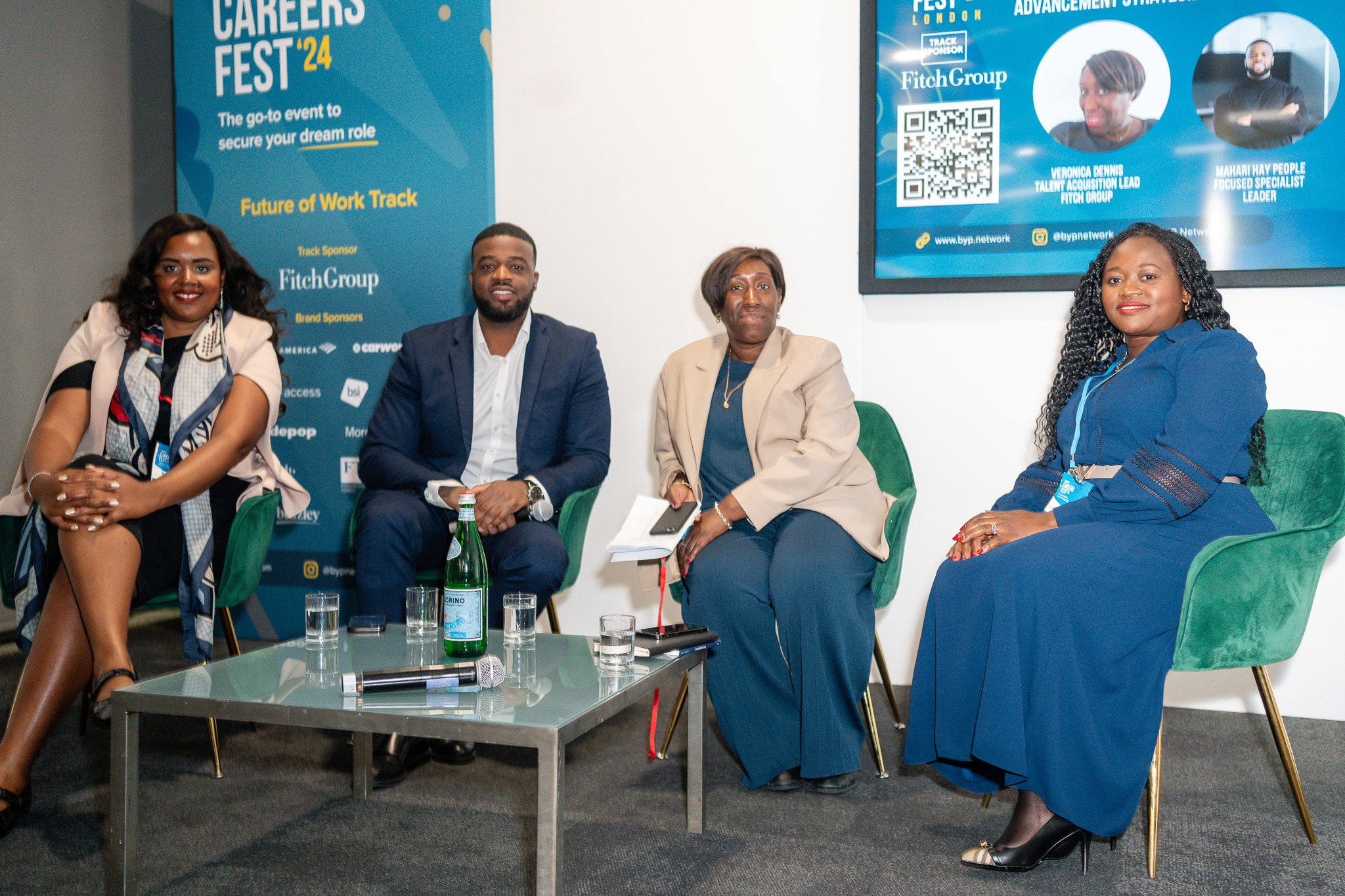
We caught up with Kike Oniwinde, CEO and founder of The Black Young Professional Network (BYP), to hear about how they’re working to empower black professionals and level the playing field when it comes to investment funding…
Tell us about BYP Network
BYP Network is a global platform that connects black professionals and corporations. This platform is my way of bringing this talented – yet marginalised – community together to support one another and grow together. Helping them connect all over the world helps to bridge divisions that exist internally and externally of the black community.
I also believe in working with corporations and holding them accountable for real organisational change, allowing them to play their part in developing and empowering the black community. I welcome allies that want to help champion equity and equality for the black community whilst understanding the importance of not taking up space.
BYP Network facilitates employment, mentoring, networking and up-skilling for over 40,000 members. We work with a number of companies from start-ups through to large corporations such as Accenture, Facebook and Depop. With a focus on recruitment, retention and reputation through our job board, shortlisting of candidates, webinars and connections to Black/BAME internal networks to help mobilise change.
Why did you decide to start the BYP Network?
I could tell something wasn’t right growing up, but I couldn’t quite put my finger on it. I was a young A* student with sporting prowess and a hunger to succeed. I had tunnel vision with a focus strictly on my attainment. I gained a lot of opportunities, whether it was internships at investment banks, awards for my accomplishments or scholarships to America; I was classified as a high achiever. However, I was 23 years old when the penny dropped and my eyes opened to just how badly we had it as a black community in the UK and across the globe. I was able to assess my privileges and realised that others that looked like me, weren’t as fortunate. On top of this, the white people that got similar opportunities knew someone, went to private school or just frankly had a rite to passage.
MORE FROM BUSINESS
- Interview with Bunmi Scott, Founder of Eco Wellbeing Start-Up It’s All About You
- Is My Business Idea Good Enough to Run With?
- Interview with Tobi Asare, Founder of My Bump Pay
- Lockdown Lifts Lead to Preference for Bitcoin Payments
- Interview with Markus Stripf, CEO and Co-Founder of Spoon Guru
- Cloud Technologies Leading Businesses Through COVID-19 Crisis
- Interview with Zarja Cibej, Founder and CEO of Childcare Start-Up myTamarin
- The Death of the British High Street
We launched in Autumn 2016 after the harrowing videos of Sandra Bland, Philando Castile, Alton Sterling and many more dying at the hands of police brutality in America came to the surface. Alongside this, the UK was struggling with the highest rates of a knife crime epidemic. We wanted to address the lack of black people in companies (let alone senior positions) and an inability to find positive role models outside of the entertainment industry. From this BYP Network was created to ‘change the black narrative’ by bringing a black professional global community together to solve our problems through economic empowerment and connectivity.
What issues do you think black start-up founders come up against, and what do we need to do to shine a light on these issues?
The main issue facing many black start-up founders is the lack of access to funding to support their business. In Europe, €13bn (£11.6bn) a year funding is spent on predominantly white, male founding companies to innovate the future. This capital is barely accessible to black founders. Only 1% of companies invested in are black-owned. Only 0.2% of companies invested in have a black, female founder.
To shine a light on these issues we need a call to action to European Venture Capitalists. I recently helped write an open letter to European investors asking for firms to invest 1 per cent of their funds in an early stage investment syndicate for black entrepreneurs. We also asked that they record and publish how many black founders they meet each month and what stage in the investment process they reach. Eventually, we want investors to publish details of how many black employees work within their funds and portfolio companies, and establish how they can improve those figures and appoint more black staff to investment committees.






